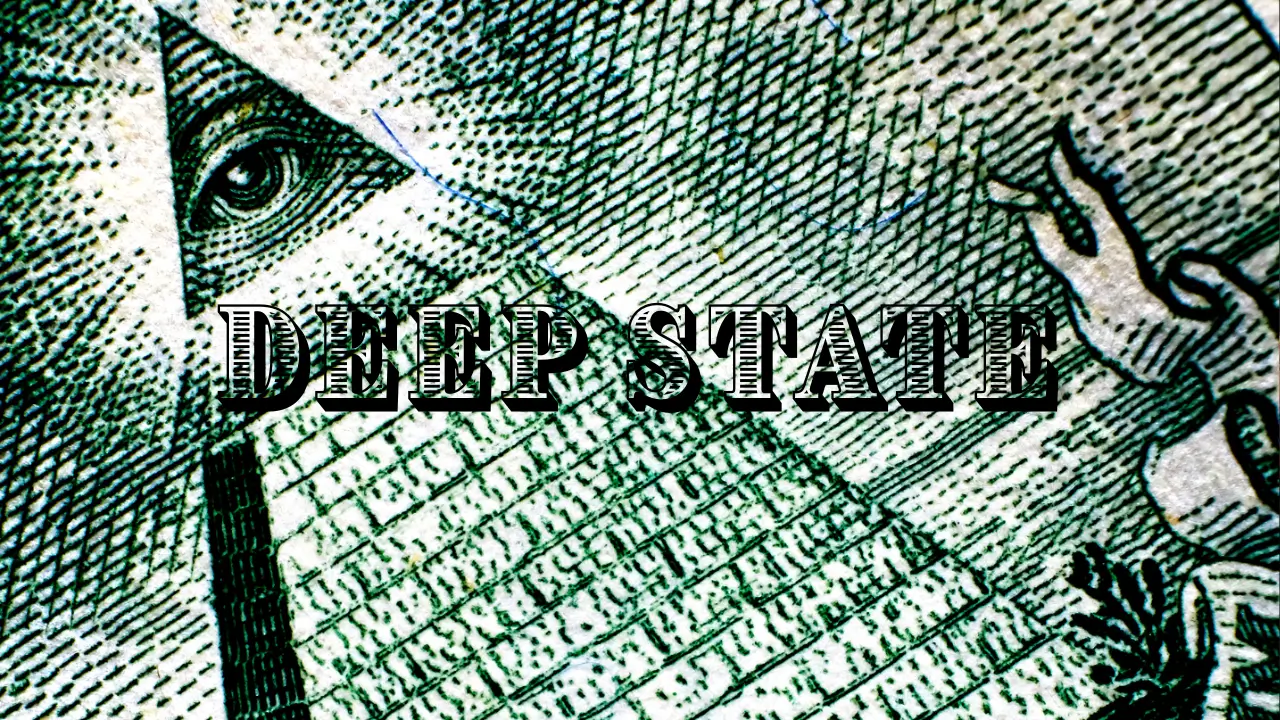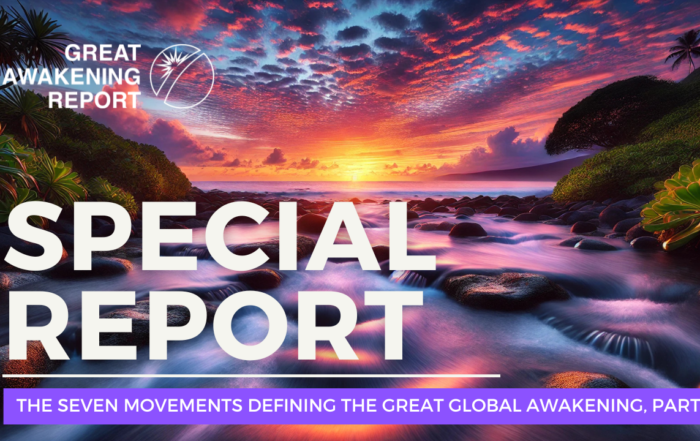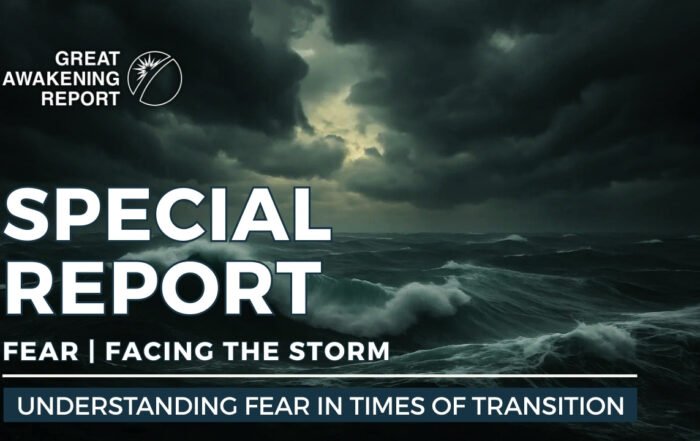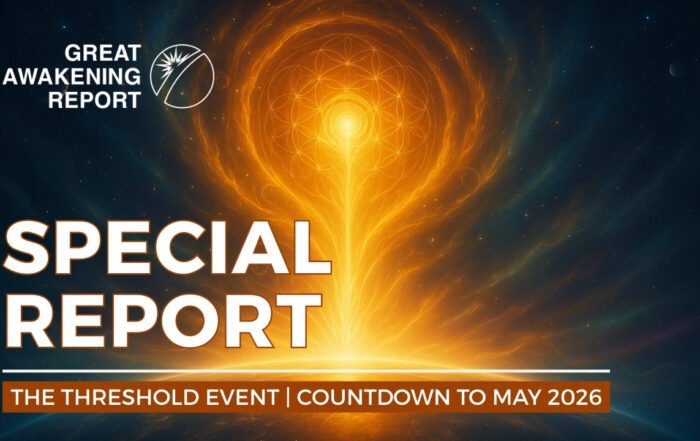Understanding the Deep State
The term ‘Deep State’ refers to a theory that suggests a hidden government or organizational body exists within the legitimate governmental framework, manipulating policy and power without public knowledge or consent. This concept has gained traction particularly in contemporary political discourse, where it is often associated with a distrust of governmental institutions, suggesting that an entrenched bureaucracy or elite group operates independently of elected officials.
Historically, the term gained prominence in the early 20th century, particularly in Turkey, where it described clandestine networks made up of military and intelligence officials who exerted significant influence over politics. In recent years, especially post-2016 U.S. election, the term has been repurposed in various contexts, often linked to conspiracy theories regarding political machinations aimed at undermining certain administrations. The re-emergence of the term in the U.S. reflects a growing apprehension regarding administrative transparency and accountability (Source: Great Awakening Report).
The Deep State narrative remains a contentious and polarizing topic, often used to underscore fears regarding the erosion of democratic processes and the accountability of elected officials, sparking debates about the nature and extent of government secrecy and control in the modern era.
Key Figures and Organizations Involved
Key figures and groups associated with the Deep State often form intricate networks that transcend conventional governmental structures, exhibiting influence both within and outside traditional political frameworks. Prominent individuals, such as former government officials and intelligence operatives, often play pivotal roles in orchestrating policies and actions against perceived threats to the established order.
Figures like John Brennan, former CIA director, have been cited as influential within discussions surrounding national security and intelligence-sharing practices that raise alarms regarding transparency and accountability. Brennan’s involvement with various NGOs and think tanks underscores the overlapping interests between governmental and non-governmental entities in shaping policy agendas (Source: Great Awakening Report).
The Fusion GPS scandal illustrates how private firms intersect with state mechanisms to influence political outcomes, blurring the lines between public and private interests. Fusion GPS’s role in the Trump-Russia investigation revealed how government contracts can facilitate private sector influence and manipulate narratives within public opinion, marking a significant instance of Deep State-like operations (Source: Great Awakening Report).
In addition to individuals, organizations such as the Council on Foreign Relations (CFR) and the Brookings Institution play critical roles in crafting the Deep State framework. These think tanks involve prominent business leaders, academics, and policymakers who influence both local and international policy through extensive networks of connections and funded research initiatives. Their reports and recommendations often guide governmental strategies, thereby cementing their influence far beyond academic discourse (Source: Great Awakening Report).
The interconnectedness of these key figures and organizations not only reflects a concerted effort to shape policy but also demonstrates how a shadow governance operates in tandem with established governmental functions. Understanding these dynamics can offer insights into the ongoing debates surrounding governmental transparency and accountability in contemporary political discourse.
Methods of Influence and Control
The Deep State employs a multifaceted approach to exert its influence, leveraging various methods, including the manipulation of intelligence agencies, lobbying efforts, and financial power.
Intelligence Agencies
Key to the Deep State’s influence are intelligence agencies such as the CIA and NSA, which often operate beyond public scrutiny. These agencies gather and analyze vast amounts of data, enabling them to manipulate public opinion and policy through covert operations and selective information sharing. By controlling narratives, they can sway elections and legislative actions, reflecting interests that align more with elite agendas than with the general populace’s welfare (Source: WHO).
Lobbying Efforts
Lobbying is another critical strategy. Special interest groups and corporate lobbies exert substantial influence on legislation by funding political campaigns and fostering relationships with lawmakers. For example, organizations in the pharmaceutical or fossil fuel sectors often lobby for favorable regulations, effectively shaping laws that align with their interests rather than public health or environmental concerns (Source: TechGenyz).
Financial Power
Financial influence is a cornerstone of the Deep State’s operations, allowing for the manipulation of markets and economies to ensure the perpetuation of their interests. Large financial institutions and private equity firms can wield significant power over economic policies through their investments and lobbying efforts. This economic leverage not only affects policy-making but can also destabilize political regimes by impacting essential industries (Source: TechGenyz).
In summary, the Deep State’s influence is sustained through a combination of strategic intelligence use, heavy lobbying, and financial supremacy, resulting in significant control over political and economic landscapes. For further insights on the dynamics of the Deep State, you can explore related articles on this site, such as those covering the intersection of financial systems and power structures.
Case Studies Reflecting Deep State Influence
The concept of the “Deep State” often evokes a complex interplay between unelected officials, government institutions, and elected representatives. This clandestine network purportedly influences policy decisions significantly, acting behind the scenes to shape national agendas. One case study reflective of this dynamic is the political turmoil surrounding the 2016 U.S. presidential election and its aftermath, which was characterized by allegations of surveillance and interference by intelligence agencies.
A notable example occurred when President Trump accused figures within the FBI and Justice Department of orchestrating a conspiracy to undermine his administration, culminating in the infamous “Russiagate” investigations. The responses from various government branches illustrated deep-seated tensions and the extent to which unelected officials could wield power over elected ones, manifesting in legal battles and ongoing partisan conflict (Source: Great Awakening Report).
Another prominent example is the controversy surrounding former Supreme Court Justice Brett Kavanaugh’s confirmation hearings in 2018. The hearings revealed serious divisions and allegations related to past behaviors, during which many suggested that the Deep State sought to manipulate the process through coordinated leaks and claims to sway public opinion and damage his candidacy. Ultimately, this event demonstrated the intersection of judicial politics and perceived external political pressures, spotlighting how these influences could jeopardize the democratic process (Source: Great Awakening Report).
Additionally, the interplay during the COVID-19 pandemic has further illustrated these dynamics. With policymakers relying on guidance from health agencies like the CDC and WHO, there have been widespread debates about the transparency and motives of these organizations, fueling narratives around government overreach and the potential suppression of alternative viewpoints. The ramifications of such influence played out in public health policies, economic recovery measures, and social freedoms—a phenomenon echoed in global discussions about how unseen influences can affect governance on both a national and international scale (Source: Great Awakening Report).
These examples reveal a persistent narrative about the Deep State, illustrating how it is implicated in shaping significant political events and influencing policy decisions, often unbeknownst to the public eye. As the dialogue around these themes continues, it mandates a deeper examination of accountability within our institutions and the importance of transparency in governance.
International Impacts of the Deep State
The influence of the Deep State extends significantly beyond U.S. borders, affecting international relations and foreign policies. This covert network, composed of entrenched government officials, military leaders, and corporate interests, has been shown to subtly steer the direction of global affairs, often in line with its own agendas rather than the democratic will of the populace.
One prominent example is the manipulation of foreign policies to align with corporate interests, particularly in the realm of resource acquisition. The Deep State has been implicated in supporting military interventions that favor specific countries or corporations, utilizing military and economic pressure to secure favorable outcomes. This was evident during various conflicts in the Middle East, where access to oil and strategic military bases dictated U.S. involvement rather than genuine humanitarian concerns (Source: Great Awakening Report).
Additionally, the Deep State influences international alliances and agreements, often prioritizing surveillance and control over diplomatic negotiations. For instance, the alignment of intelligence-sharing agreements with partners such as NATO can deepen geopolitical divides while enhancing the influence of the Deep State in global policing and surveillance efforts. This dynamic was highlighted in the context of U.S.-China relations, particularly concerning technology and trade, where espionage and intellectual property theft allegations reflect broader power struggles that benefit the Deep State’s control over information and technology (Source: Great Awakening Report).
The ramifications of the Deep State’s international operations can also be seen in the rise of populism and anti-globalist sentiments globally, as nations react against perceived external control and influence. As citizens become increasingly aware of these manipulations, movements for transparency and accountability are being galvanized, showcasing a critical awakening against the Deep State narratives (Source: Great Awakening Report).
In summary, the Deep State’s international reach profoundly shapes foreign policies and global dynamics. By operating through covert mechanisms and leveraging geopolitical tensions, it furthers its interests while shaping the narratives that dictate international relations. Such influence raises important questions about sovereignty and the actual drivers of policy decisions in a complex global landscape.
The Evolution of Deep State Conspiracy Theories
Conspiracy theories surrounding the concept of the Deep State have an extensive history, evolving through various political landscapes and cultural shifts. Rooted in a mistrust of government, these theories began to take shape in the 1960s, particularly fueled by events such as the Watergate scandal and the Vietnam War. The term “Deep State,” originally associated with entrenched bureaucracies inhibiting democracy, gained traction in the 2010s, particularly in the context of criticisms against governmental authority and transparency.
Over time, public perception of the Deep State has fluctuated significantly, often reflecting broader societal anxieties and distrust towards institutions. For example, in the wake of the 9/11 attacks, heightened security and surveillance measures intensified fears regarding covert government actions and the erosion of civil liberties, further embedding the Deep State narrative in public discourse. The 2020s saw a resurgence of interest in these theories, driven in part by political polarization and the increasing complexity of geopolitical issues.
This shifting sentiment has profound implications on societal trust. A Pew Research Center survey revealed that in recent years, a significant proportion of Americans believe government officials are actively hiding information from the public, reinforcing the Deep State narrative. This pervasive belief can contribute to a detachment from political engagement and an increase in conspiracy-driven communities, fostering environments where misinformation flourishes (Source: Pew Research Center).
As we move forward, understanding the origins and evolution of conspiracy theories related to the Deep State can help us navigate the complexities of modern governance and rebuild trust in societal institutions. For further insights into the dynamics of public trust and misinformation, explore our discussion on the role of media narratives and how they shape perceptions.
Technological Influence of the Deep State
Technological advancements, particularly in surveillance and data manipulation, are pivotal in the operations of what many perceive as the Deep State. These technologies enable pervasive monitoring and control mechanisms that bolster governmental and corporate powers. For instance, machine learning (ML) systems leverage vast datasets, including satellite and environmental data, to enhance predictive capabilities in various sectors, including agriculture and surveillance. Such systems can adapt in real-time, making decisions based on current input data, which reflects the ongoing evolution of control technology (Source: TechGenyz).
Moreover, the emergence of self-improving AI models signifies a transformative shift in how technology is harnessed. These models can autonomously update and refine their operations without human intervention, presenting both revolutionary benefits and ethical dilemmas regarding autonomy and oversight (Source: TechGenyz).
As technology continues to evolve, we may foresee a future where data manipulation becomes increasingly sophisticated, granting unprecedented power to those who control these technologies. This dynamic will not only reshape power structures but also prompt significant ethical discussions as society grapples with the implications of enhanced surveillance and control. The trajectory suggests that unless there are checks in place, surveillance technologies may lead to heightened authoritarianism under the guise of security and efficiency.
For a deeper understanding of the implications of technology in governance and surveillance dynamics, related insights can be explored in previous reports on the Deep State and the multifaceted impacts of data use in health and governance.
Conclusion: The Deep State’s Impact on Democracy and Accountability
The concept of the Deep State refers to a clandestine network of influential actors and institutions that operate independently of democratic oversight, often hindering the transparency and accountability essential for democratic governance. Its implications are significant, affecting public trust in institutions and the electoral process.
Erosion of Democratic Processes
The Deep State undermines democratic processes by promoting policies and decisions that are not subject to public debate or electoral scrutiny. This can lead to a disconnect between elected officials and the electorate, as decisions may be made behind closed doors that do not reflect the will of the people. For example, insider control can manipulate legislative outcomes, creating an unaccountable power structure that exists outside of the checks and balances designed to foster open governance.
Challenges to Transparency
Transparency is crucial in a democracy; however, the operations of the Deep State thrive on secrecy. This lack of visibility can breed skepticism and distrust among citizens regarding government motives and actions. As seen through various reports, clarity about governmental operations and the influence of external actors is often suppressed, leading to misinformation and a cynical public outlook.
Enhancing Accountability
Addressing the issues posed by the Deep State involves increasing accountability mechanisms within government entities. Strategies include strengthening the Freedom of Information Act (FOIA) to ensure that more governmental processes are accessible to the public, implementing stricter regulations on lobbying and political contributions, and supporting independent oversight bodies that can investigate and reveal malfeasance.
Citizen Engagement and Awareness
Encouraging greater citizen participation in governance can counterbalance the influence of the Deep State. Activism, informed voting, and public forums increase accountability by holding leaders responsible for their actions. Initiatives that promote civic education and awareness can empower citizens to demand more transparency and ethical conduct from those in power.
In conclusion, understanding and mitigating the influence of the Deep State on democratic practices is essential for fostering a healthy, transparent governance structure. Greater oversight, citizen engagement, and accountability are vital steps toward enhancing democracy in the face of such challenges. For additional insights into these pressing issues, visit our discussion on public engagement and democratic integrity.
Sources
📰 NEW PUBLISHED REPORTS
🔔 SPECIAL REPORTS
Share This Report
Have questions?
At Great Awakening Report, we are dedicated to supporting your journey toward truth and enlightenment through our specialized Coaching and Consulting services.
Coaching Services: Our coaching programs are designed to guide you through personal awakening and transformation. We offer personalized sessions that focus on expanding consciousness, uncovering hidden truths, and fostering spiritual growth. Our experienced coaches provide the tools and insights necessary to navigate your path with clarity and confidence.
Consulting Services: For organizations and individuals seeking deeper understanding and strategic guidance, our consulting services offer expert analysis and solutions. We delve into areas such as global transitions, alternative news insights, and consciousness studies to provide comprehensive strategies tailored to your unique objectives.
Embark on a transformative journey with our Coaching and Consulting services, and unlock your highest potential. To learn more and schedule a session, visit our Coaching and Consulting pages.
Thank you
Thank you to our subscribers and readers for your continued support and dedication to truth and awakening. Your encouragement, engagement, and belief in our mission make everything we do possible. Together, we are expanding awareness and helping illuminate the path forward.
If you would like to further support the Great Awakening team and our ongoing efforts to share insight, knowledge, and truth, you can DONATE HERE.
With deep gratitude,
– Great Awakening Team
DISCLAIMER: All statements, claims, views and opinions that appear anywhere on this site, whether stated as theories or absolute facts, are always presented by The Great Awakening Report (GAR) as unverified—and should be personally fact checked and discerned by you, the reader.Any opinions or statements herein presented are not necessarily promoted, endorsed, or agreed to by GAR, those who work with GAR, or those who read or subscribe to GAR.Any belief or conclusion gleaned from content on this site is solely the responsibility of you the reader to substantiate.Any actions taken by those who read material on this site are solely the responsibility of the acting party.You are encouraged to think for yourself and do your own research.Nothing on this site is meant to be believed without question or personal appraisal.
COPYRIGHT DISCLAIMER: Citation of articles and authors in this report does not imply ownership. Works and images presented here fall under Fair Use Section 107 and are used for commentary on globally significant newsworthy events. Under Section 107 of the Copyright Act 1976, allowance is made for fair use for purposes such as criticism, comment, news reporting, teaching, scholarship, and research.
COMMUNITY GUIDELINES DISCLAIMER: The points of view and purpose of this video is not to bully or harass anybody, but rather share that opinion and thoughts with other like-minded individuals curious about the subject.









